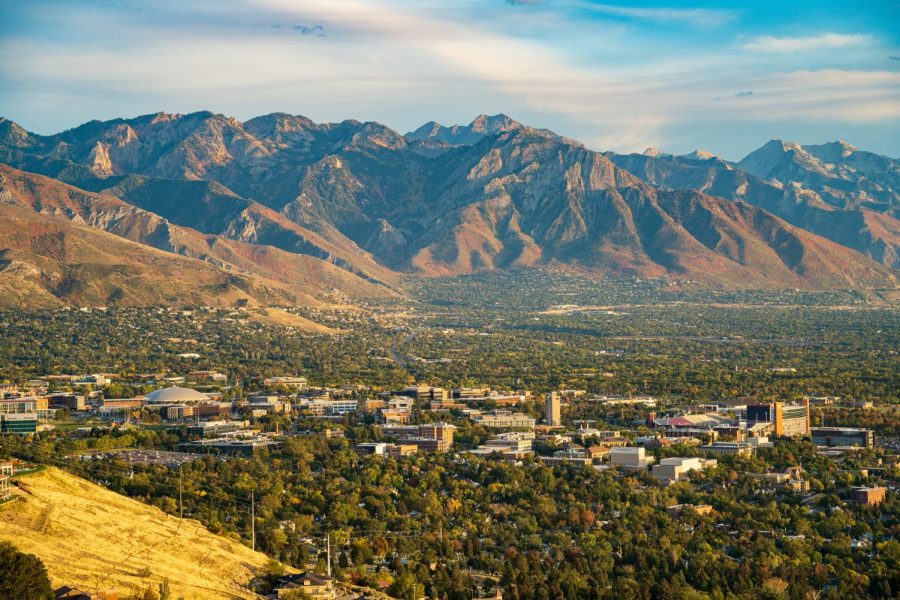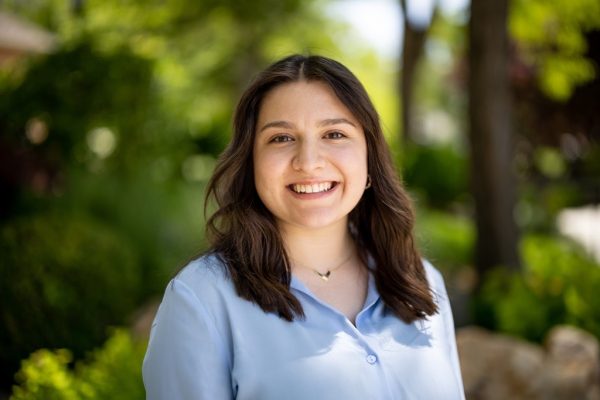A Center for Medical Cannabis Research is in the Works at the U
The University of Utah campus in Salt Lake City, Utah on Oct. 5, 2021. (Photo by Xiangyao “Axe” Tang | The Daily Utah Chronicle)
March 26, 2023
The University of Utah will be housing a new Center for Medical Cannabis Research after the legislature and the governor approved the project proposed by Rep. Jennifer Dailey-Provost and Sen. Evan Vickers during the 2023 Legislative Session.
Utah started its path to legalizing the use of medical cannabis in 2018. After a couple of special legislative sessions and a few lawsuits later, the current law allows for using medical marijuana with specific qualifications and an application process.
Currently, there is a Cannabis Research Review Board that looks at research “related to the human use of cannabinoids” approved by an Institutional Review Board or the federal government.
Dailey-Provost said she created the bill because Utah’s ability to give meaningful research or scientific-based information to providers and patients is severely limited. She said she saw that Kentucky opened a medical cannabis research center at the University of Kentucky despite not having a medical cannabis program.
“I figured if Kentucky can do it … we can create one in Utah as well,” she said.
She said Utah is not conducting any research, rather they are just reading what’s out there.
“What we hear from providers, especially physicians, nurse practitioners, PAs who can recommend [cannabis] as a medication is that they just don’t feel like they have enough information to really confidently recommend this as part of a comprehensive health care plan,” she added.
Dailey-Provost said the hope of the center is to make sure Utah has one entity monitoring all the various research and work being done in the state, across the U.S. and globally. She said another goal is to “identify gaps in patient accessibility, and support researchers and going out and finding grounds, doing the work, talking to other states about what work is going on.”
Dailey-Provost wants to explore opportunities for Utah to create a National Institute of Health-approved medical cannabis growth site. “There are only six in the nation that grow medical grade cannabis that is eligible for study by NIH grants,” she added. “I think Utah with its robust agricultural heritage, we have an opportunity to maybe be a center for meeting those needs for research being done at the National Institutes of Health.”
The details of the center are still in the works. The center has an appropriation of $650,000 from the Department of Health’s Qualified Patient Enterprise Fund.
“Obviously, everything can’t be accomplished in one year, but the legislature has really made a longitudinal commitment, so ensuring that the science that is prepared to go … can go in the first year and then staging subsequently after that are the key steps … to ensure that we really are able to deliver on the promise of this vision,” said Dr. Rachel Hess, associate vice president of research for U Health.
Other researchers and Utah universities have an opportunity to participate in this research. Hess said building communities across the state will be critical to moving this work forward.
“I think that’s going to be really important to communicate with all of the institutions across Utah about, about this work that the legislature is sponsoring and then bringing together that community to form those collaborations to move this work forward,” she said.
According to Hess, the center’s first year will be opportunistic about work at the precipice of being executed, while focusing on community building. “Going into the second year, I think we have some more capacity to do strategic planning as to organizing and ensuring that we’re hitting all of the different buckets within that,” she added.
Hess said they are very excited about this opportunity. She said they are grateful to Dailey-Provost and Vickers for advocating for this. “We really feel like Utah can lead in many ways in this area and are just really proud of the forward-thinking nature of creating something like this,” she added.








